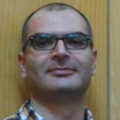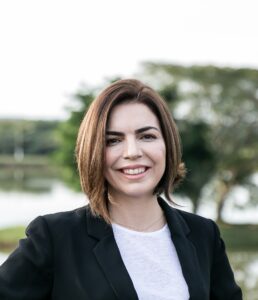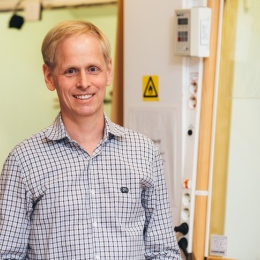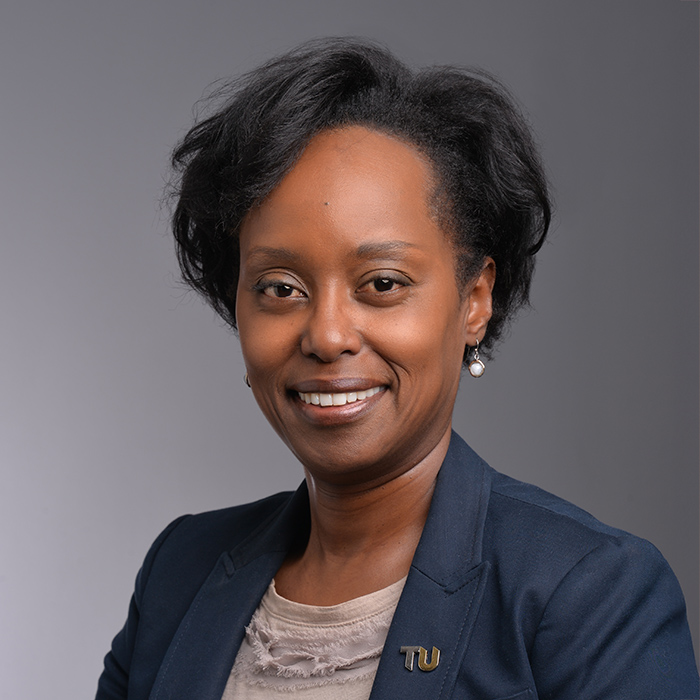The Chemistry for Climate Action Challenge is one of the Elsevier Foundation’s flagship partnerships. Together with Elsevier’s Chemistry journals, the Elsevier Foundation provides funding of 25,000 euros for 2 winning projects per year, implementing green & sustainable chemistry solutions in the Global South – advancing both Climate Action (SDG 13) and Gender Equity (SDG 5).
Climate change is the most important challenge affecting the future of our planet and it is essential that we take action. We also know that chemical sciences play a critical role in developing a sustainable future. UN Sustainable Development Goal 13, Climate Action, underscores the need to “[…] promote mechanisms for raising capacity for effective climate change-related planning and management in least developed countries, including focusing on women, youth and local and marginalized communities”.
Through its focus on Climate Action, the Chemistry for Climate Action Challenge also supports SDG5, Gender Equality , recognizing the pivotal role that women play in combating climate change. Projects submitted to the Challenge must integrate a gender dimension (such as addressing the role of women in adapting to climate shifts and participating in policy-making and leadership roles) into their projects.
Meet the winners

Our winners are working on projects ranging from natural biopesticide in Malaysia to ecorestoration in Nigeria, from natural preservatives in Nepal to butterfly attractant in India and wastewater treatments in Jordan. Read their stories.
Criteria and prizes
Before submitting your proposal, make sure to read the full description of the Challenge and the criteria with which the proposals will be evaluated.
The Elsevier Foundation Chemistry for Climate Action Challenge is jointly run by the Elsevier Foundation and Elsevier’s chemistry journals team. The Challenge is open to individuals and organizations whose projects use green and sustainable chemistry solutions to tackle some of the developing world’s greatest sustainability challenges. Read more about Elsevier and green chemistry.
The winning projects will receive a prize of €25,000 each. The winners will be announced at the 8th Elsevier Green & Sustainable Chemistry Conference (13-15 May 2024) in Dresden, Germany.
1. How do I submit my proposal?
You can submit your proposal on the Elsevier Foundation Chemistry for Climate Action Challenge platform at this link: https://app.oxfordabstracts.com/stages/6638/submitter
For a successful proposal it is essential to familiarize yourself with the Challenge’s full description and criteria.
2. What is in scope and what is out of scope for the Challenge?
In-scope: scale ups of existing projects where the prize represents most of the overall needed budget; innovative green & sustainable chemistry solutions implemented in the Global South. For example, projects looking at Sustainable Chemistry Solutions: Waste Utilization; Alternative Energy Sources; Biodiversity and Ecosystem Health; Climate Change Mitigation; Community Empowerment; Sustainable Agriculture; Water Resource Management; Health and Well-being:
Out-of-scope: projects to be implemented outside of low-and-middle income countries; projects with no gender component, educational projects without a strong scientific green & sustainable chemistry component; prize money mainly used on expensive equipment; prize money mainly used on personnel; projects in the Global South without a local implementation partner.
3. What are the Challenge’s process and deadlines?
The Elsevier Foundation Chemistry for Climate Action Challenge is articulated in the following phases.
- Submission phase: this is the general submission period. Proposals can be submitted from 15th of September 2023 to the 10th of December 2023. The original deadline for submissions was November 13 but it has now been extended to December 10, 2023.
- Reviewing phase: out of all submitted proposals, the top tier eligible proposals will be selected by a panel of reviewers and will be advanced to the judging phase.
- Judging phase: the scientific jury will evaluate the proposals and identify the finalists. The Top 5 finalists will be selected to compete for the two prizes and will be invited to present their proposal at the 8th Elsevier Green & Sustainable Chemistry Conference (13-15 May 2024).
4. What are the prizes of the Elsevier Foundation Chemistry for Climate Action Challenge?
The Elsevier Foundation Chemistry for Climate Action Challenge awards 2 prizes of €25,000 each.
The Challenge award projects that use green and sustainable chemistry solutions to tackle some of the developing world’s greatest sustainability challenges – encouraging researchers to come up with new solutions.
5. When will I know the results of my application?
- The list of the top tier proposals that will be advanced to the judging phase of the Challenge will be published in December 2023 the Elsevier Foundation website.
- The list of the Top 5 proposals will be published on our website early February 2024. The finalists will be invited to present their project at the 8th Elsevier Green & Sustainable Chemistry Conference (13-15 May 2024), where the winners of the two prizes will be announced.
6. Can I get feedback on my proposal?
Unfortunately, due to the high number of applicants, it is not possible to offer individual feedback.
7. Is it possible to get a certificate to prove that my proposal was selected as a top tier proposal?
Yes, it is possible. Requests for certificates should be made at chemistry.challenge@elsevier.com.
8. Who can I contact if I have additional question?
For any question or clarification, you can reach us at chemistry.challenge@elsevier.com.
Judging Panel
 Prof. Dr. Borhane Mahjoub
Prof. Dr. Borhane Mahjoub
University of Sousse, Tunisia
Prof. Dr. Borhane Mahjoub (1973) received his MSc and PhD in Waste Sciences and Technologies (1999) from the National Institute of Applied Sciences (INSA) of Lyon (France). Then, he went to the Polytechnic High School of Montréal (Canada) for a post-doctoral research study in 1999-2000. Read more
 Prof. Dr. Klaus Kümmerer
Prof. Dr. Klaus Kümmerer
Leuphana Universität Lüneburg, Germany
Prof. Dr. Klaus Kümmerer is Professor of Sustainable Chemistry and Material Resources at the Leuphana University Lüneburg and director of the Research and Education Hub of the International Collaborative Center for Sustainable Chemistry (ISC3). His interest is in designing benign chemicals to address the quest of micro pollutants in the aquatic environment, usage and protection of material resources, environmental chemistry and water chemistry, ecology of time, and the development of interdisciplinary study courses and programs of sustainable chemistry. He is also founding editor and editor-in-chief of the scientific journals “Sustainable Chemistry and Pharmacy“ and „Current Opinion in Green and Sustainable Chemistry“. Read more
 Prof. Vania Zuin Zeidler
Prof. Vania Zuin Zeidler
Federal University of São Carlos, UFSCar, Brazil
Prof.Vania Zuin Zeidler is a professor at the Federal University of São Carlos (UFSCar, Brazil) and visiting professor at the University of York (UoY, England) and at the Leuphana University (Germany), working on Green and Sustainable Analytical Chemistry and Green and Sustainable Education. Recent distinctions include the 52o and 57o National Literary Jabuti Awards (Brazilian Chamber of Book), the title of Honorary Visiting Fellow at the University of York (UK) and Fellow of the Royal Society of Chemistry (FRSC), President of the Brazilian Humboldt alumni Association, the IUPAC CHEMRAWN VII Prize for Atmospheric and Green Chemistry and the ACS-CEI Award for Incorporating Sustainability in Universities, sponsored by the American Chemical Society’s Committee on Environmental Improvement (CEI).
 Dr. Sam Adu-Kumi
Dr. Sam Adu-Kumi
Environmental Protection Agency, Accra, Ghana
Sam Adu-Kumi has a diverse research interests in the areas of: environmental fate, human exposure and health risk assessment of POPs and Heavy Metals (Mercury, Lead, and Cadmium) in Ghana, particularly in monitoring, sampling, analysis and risk characterisation of human health risks. Read more.
 Dr. Niklas Hedin
Dr. Niklas Hedin
Stockholm University, Sweden
Dr. Niklas Hedin obtained a PhD from the Royal Institute of Technology in Physical Chemistry, Stockholm, Sweden. He was a postdoctoral researcher at the University of California at Santa Barbara, and at ExxonMobil Corporate Research Laboratory, Annandale, US. His current research is mainly focused on adsorbents for separation or reduction of carbon dioxide, and on carbon materials derived by hydrothermal carbonization. Read more.
 Dr. Clare Muhoro
Dr. Clare Muhoro
Towson University, US
Dr. Clare Muhoro is Professor of Chemistry at Towson University and Director of Competitive Fellowships and Awards in the Office of the Provost. She holds a Ph.D. in Organometallic Chemistry from Yale University. At Towson University, Dr. Muhoro and her research students study the role of transition metals in organic transformations in two general areas: (1) synthesis of organic molecules via homogeneous metal-based catalytic hydroborations; and (2) degradation of organic pesticides in tropical aqueous environments. Read more.

















